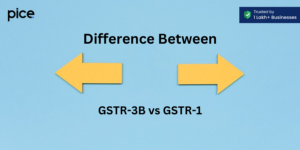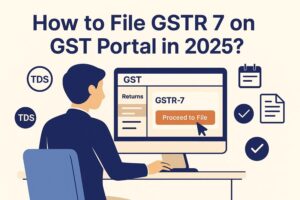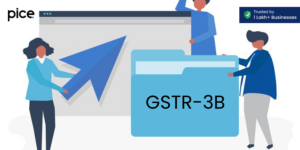What to do if GST Registration Application is Rejected?
- 21 May 25
- 10 mins
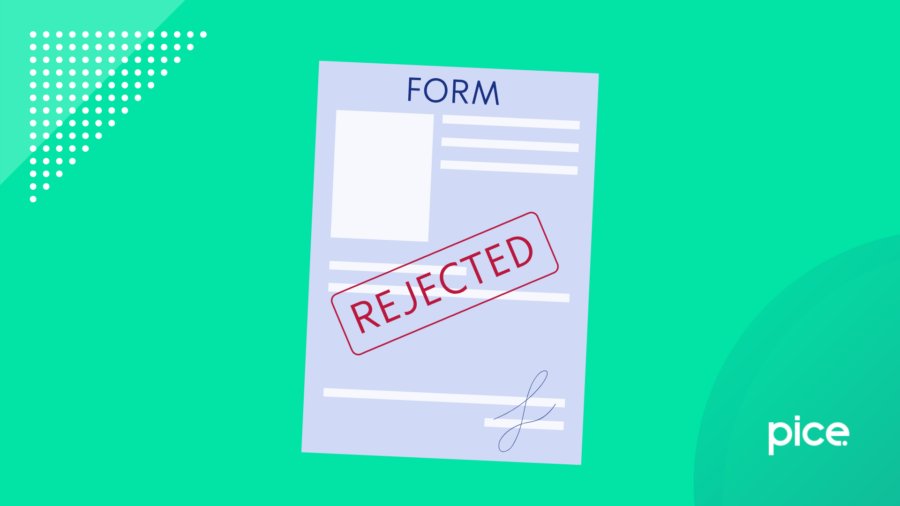
What to do if GST Registration Application is Rejected?
Key Takeaways
- Ensure all PAN, Aadhaar, and address details are accurate and consistent across documents to avoid rejection.
- Double-check the validity of your Digital Signature Certificate (DSC) and verify OTPs promptly during application.
- Common rejection reasons include missing documents, data discrepancies, and non-compliance with eligibility norms.
- Thoroughly review the rejection notice, rectify issues, and reapply with correct information and documentation.
- Seeking professional assistance can simplify the GST registration process and prevent repeated errors.
Goods and Services Tax or GST registration is a mandatory requirement for businesses in India meeting the prescribed turnover limit or specific conditions. However, many applicants face rejection due to various reasons, leading to unnecessary delays and compliance issues. A rejected GST application can disrupt business operations, causing legal and financial complications.
Knowing the common reasons for rejection and knowing how to fix them can save time and effort. Errors in documentation, incorrect details, non-compliance with address proof requirements, or discrepancies in PAN and Aadhaar details are some of the primary causes.
In this blog, we will discuss what to do if a GST registration application is rejected. Also, you will be able to explore some common reasons that often lead to a GST application rejection. Discussing the reasons and knowing the tips will help you avoid rejections in the future.
Common Reasons for Rejection of GST Application
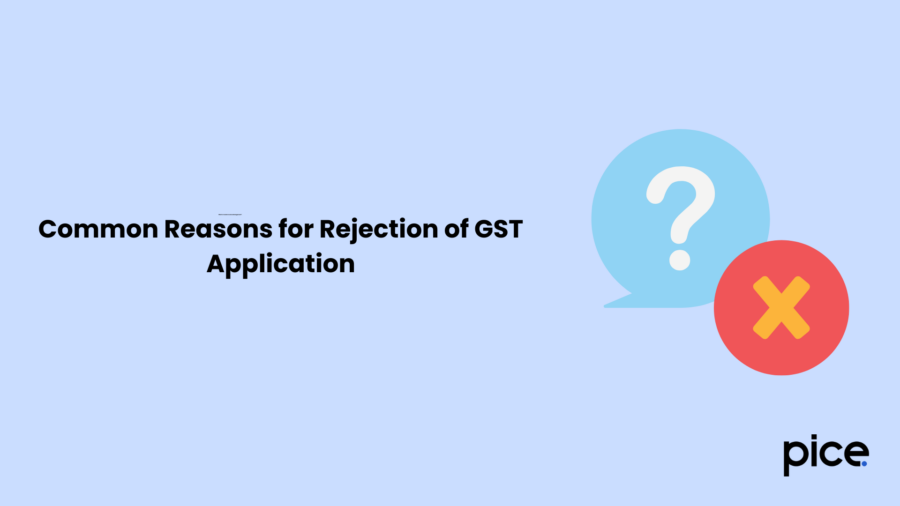
The following are some valid reasons for GST application rejections:
- Mismatch in PAN and Aadhaar Details
PAN card verification issues and addressing mismatches or discrepancies with other vital documents can lead to application rejection. To avoid this scenario, you must check whether all addresses match the official documents and revise your PAN card details beforehand (if needed).
Additionally, you can consider talking with GST authorities for help related to KYC discrepancies.
- Invalid Business Address Proof
This segment can include inconsistencies related to your business address in the GST application form. Moreover, if you fail to add supporting additional documents or bank account details, then your GST registration request may be turned down.
To avoid the problems mentioned above, double-check all the details for completeness and accuracy before submitting the application.
- Failure to Verify OTP or DSC Issues
When registering under GST, if you are using a Digital Signature Certificate (DSC), you have to first ensure that it is working properly. To verify if your DSC is active, you have to plug your DSC USB token into your computer and review the certificate details with the help of a token management tool. The tool will show you the DSC's validity along with its expiry date.
- Business Name or Trade Name Mismatch
A trade name mismatch can appear when you have failed to attach the necessary documents or submitted documents that do not meet the required specifications. Sometimes, the GST authorities may even demand additional clarification on specific business-related insights. When facing such scenarios, you must respond immediately and communicate the requested information precisely.
- Not Meeting GST Registration Criteria
When a business does not meet the turnover criteria or is found to be engaged in prohibited acts, its GST registration application can be rejected. To avoid this, it is suggested that the eligibility criteria be carefully reviewed before forwarding an application. This helps entrepreneurs ensure that their business activities are in line with the latest GST regulations.
- Failure to Justify Business Activity
Paperwork is not always straightforward when it comes to running a business. Thus, various organisations often fail to submit the necessary documents on time, which may result in the rejection of further applications or even lead to tax woes.
To navigate this issue, you can seek professional assistance to identify new growth opportunities and safeguard your business from avoidable obstacles.
- Past Non-Compliance Issues
Non-compliance issues generally arise from business activities that do not align with the GST law. You can consult a tax professional or directly clarify with GST authorities when facing these issues.
How to Resubmit a Rejected GST Application?
Now that you have understood the common reasons that can go towrads revocation of cancellation of your GST registration request, let us explore how to resubmit a fresh application.
Here is what to do if a GST registration application is rejected:
- Identify the Reasons for Rejection
Once you receive the rejection notice, go through it carefully to narrow down the particular reasons behind the denial. The most common causes include:
- Incorrect or scrappy information
- Missing relevant documents
- Several data inconsistencies
- Non-compliance with the GST eligibility criteria
Common Reasons for GST Registration Rejection
Read the table below to get a more detailed understanding of your application for registration of GST gets rejected:
| Reasons for GST Registration Rejection | Description |
| Incomplete information | This can be missing details in the GST registration form related to business activities or the PAN card. |
| Inaccurate information | Usually, there are some errors noticed in the address, business type or submitted PAN. |
| Missing documents | When the entrusted person does not attach their address proof document, PAN card or business registration certificate then this error is flagged. |
| Data inconsistencies | These are plain discrepancies between the details available in different documents and forms. |
| Non-compliance with GST eligibility criteria | Not satisfying conditions like meeting a particular turnover threshold or business activity can lead to application rejections. |
- Rectify the Issues
When you have a precise idea about the reasons of cancellation of registration of GST application, obtain the necessary documents and details to rectify the reported problems. Authorised GST authorities can provide support regarding these matters if needed.
- Initiate Re-application for GST Registration Process
To reapply for a GST registration certificate, you can follow the steps given below:
Step 1: Open the official GST portal and log into your account by entering the valid credentials.
Step 2: Select the option ‘New Registration’ under ‘Services’.
Step 3: From the beginning, fill out the application form, and this time pay close attention to accuracy and completeness.
Step 4: Provide the necessary documents as per the instructions given.
Step 5: Submit your application form and pay the registration fee (for most states it is currently ₹100)
- Track Application Status
After re-applying, you must monitor your reapplication status on the GST website. If you need additional information, forward any request or doubts to the tax authority to get a prompt response.
Additional Considerations
If you are using a DSC when submitting the GST registration form to an authorised officer, make sure that the document is functioning properly. The steps to check the same have been discussed earlier.
For people who may need assistance with the whole procedure, it is recommended to hire a GST expert or work in close association with a tax professional. They can help a business navigate tricky situations and are always available on call.
Finally, you must allow enough time for your reapplication to gain approval. It typically takes 3-7 working days for the process to get completed.
Reviewing and Understanding the Reasons for Rejection
After receiving a rejection notice, it is essential to take enough time to review and comprehend the reasons behind a rejection. Moreover, you should scrutinise particular sections to determine where your registration application fell short. Accordingly, you must keep a record to ensure avoiding similar mistakes.
Addressing the Issues Highlighted in the Rejection Letter
With all you learned, it is time to finally address such issues. Sometimes, it turns out that a person has been rejected simply because he submitted wrong or incomplete details. If that was your case, go back to your earlier application and make the required changes.
Otherwise, for non-compliance issues, you have to gauge your business’ eligibility again and follow the necessary steps to meet the necessities.
Making the Necessary Corrections and Amendments
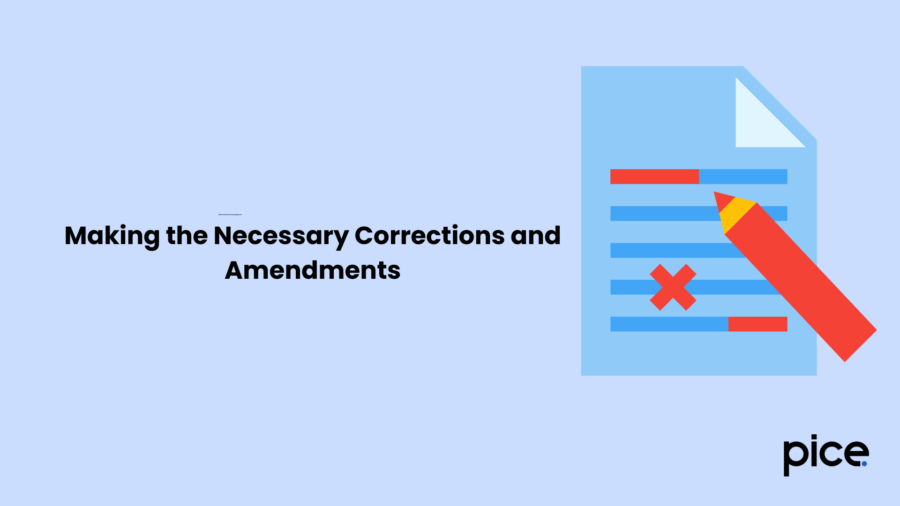
When the issues are identified and a plan has been jotted down, now you can easily amend your application. The key thing to keep in mind here is that even if your GST application has been rejected once, it doesn't have to be necessarily the end of everything. You can rectify the issues and quickly complete your GST registration.
Gathering all Necessary Documents and Information
At the time of reapplying, it is crucial to arrange all the required documents and details beforehand. It will protect you from not getting scrambled at the last moment and streamline the procedure.
Ensuring Accuracy and Completeness of the Documentation
It is not enough to collect the necessary documents. Furthermore, you must ensure they are accurate and contain all the required information.
Errors or missing details can cause further delays or even lead to another rejection. Therefore, it is worth taking the time to carefully check each document to confirm that all the information is correct and as per the recent timeline.
Conclusion
By now you have understood what to do if a GST registration application is rejected. The rejection of GST registration can frustrate a taxpayer even more. However, they can avoid this by being very careful with the details and documents. The common reasons for rejection relate to PAN mismatch, incorrect address proof, incomplete Aadhaar authentication, and wrong upload of documents.
Therefore, businesses can avoid unnecessary delays in obtaining GST registration by being accurate, following GST regulations, and promptly responding to any queries raised by the authorized officer during the evaluation of the GST registration application. If an application is rejected, proper understanding of the reason, followed by corrective measures, can make sure that the applicant does not have to face further troubles with reapplication.
No-frill GST registrations will be secured by compliance with the guidelines set forth and, where necessary, will seek professional help.
💡If you want to streamline your invoices and make payments via credit or debit card or UPI, consider using the PICE App. Explore the PICE App today and take your business to new heights.
 By
By 





